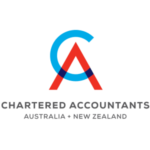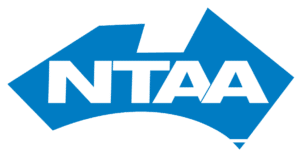The 2025 Federal Budget has landed, and while there are no major surprises, a few key changes will shape the financial outlook for millions of Australians. With revised Stage 3 tax cuts, long-awaited relief for student loan holders, and a freeze on beer and spirit excise, the government is focusing on cost-of-living pressures and modest economic support. But as always, not everyone comes out a winner.
Whether you’re a full-time worker, student, retiree, renter, or business owner, the budget will affect your bottom line in some way. So, who stands to benefit – and who misses out? We’ve broken it down in simple terms to help you quickly assess whether you’ll be better or worse off under the 2025 Federal Budget.
Winners from the FY25-26 Federal Budget
The FY25–26 Federal Budget delivers wins for low- and middle-income earners, student debt holders, renters, households facing rising bills, and beer lovers, with targeted cost-of-living relief and revised tax cuts.
“Modest” two stage personal income tax cut from 1 July 2026
The Government will provide a “modest” tax cut to all taxpayers from 1 July 2026 and again from 1 July 2027.
The tax rate for the $18,201-$45,000 tax bracket will reduce from its current rate of 16%, to 15% from 1 July 2026, then to 14% from 2027-28 at a cost of $648m over four years.
The saving from the tax cut represents a maximum of $268 in the 2026-27 year and $536 from the 2027-28 year.
Proposed personal income tax threshold
| Thresholds ($) | Rates in 2024–25 and 2025–26 (%) | Rates in 2026–27 (%) | Rates in 2027–28 (%) |
| 0 – 18,200 | Tax free | Tax free | Tax free |
| 18,201 – 45,000 | 16 | 15 | 14 |
| 45,001 – 135,000 | 30 | 30 | 30 |
| 135,001 – 190,000 | 37 | 37 | 37 |
| >190,000 | 45 | 45 | 45 |
Medicare levy thresholds increased for low-income earners from 1 July 2024
The Medicare levy low-income threshold exempts low-income earners from having to pay the levy. From 1 July 2024, the threshold for the exemption will increase.
The change will mean low-income earners will pay less when they lodge their income tax returns for 2024-25.
| 2024-25 | 2025-26 | |
| Singles | $26,000 | $27,222 |
| Families | $43,846 | $45,907 |
| Single seniors & pensioners | $41,089 | $43,020 |
| Family seniors & pensioners | $57,198 | $59,886 |
| Family additional child or student | $4,216 | $4,027 |
The threshold changes come at a cost of $648m over 5 years.
Child care
Three days of subsidised childcare for families with young children (income tested) from 1 January 2026 replacing the Child Care Subsidy activity test.
First Home Buyers
The Government’s ‘Help to Buy’ program reduces the deposit required to buy a home by providing an equity contribution. Under the program, Housing Australia provides eligible participants with a Commonwealth equity contribution of up to 30% of the purchase price of an existing home and up to
40% of the purchase price of a new home. That is, they will give you the money and take a stake in your home.
Originally, to be eligible for the program, the income threshold for a single was $90,000 and, for joint participants, $120,000. The Budget increases this threshold to $100,000 and $160,000 respectively. Additional conditions apply.
Trades
The government will introduce a single national licence for electricians, removing the need to apply separately in each state or territory. This aims to boost workforce mobility, cut red tape, and make it easier for tradies to work across Australia.
Housing Support will provide accommodation assistance for apprentices, particularly those who need to relocate or travel for training and work. This initiative is designed to attract more young people into trades and support them through rising housing costs.
The budget includes additional funding to support the Apprenticeship Support Program, aiming to increase completion rates and fill labour shortages in priority sectors like construction and energy.
Student Debt
HELP/HECS student debt will now be indexed by the lower of CPI or Wage Price Index (WPI), rather than CPI alone. This significantly reduces the annual increase in student debt—particularly helpful after last year’s sharp 7.1% rise.
The change applies retrospectively from 1 June 2023, meaning millions of Australians will see a reduction in their student debt balances, with no action required.
Future indexation is expected to be more modest, easing the long-term burden on graduates already dealing with rising living costs.
Australian made products
Funding focuses on critical minerals, renewable hydrogen, green metals, and clean energy manufacturing, with incentives for businesses investing in local production and clean tech.
The package includes financing, tax incentives, and targeted support to attract private sector investment in Australian-made goods, particularly in industries aligned with the global energy transition.
Training programs and apprenticeship support are also tied to the initiative, helping to build a skilled workforce to support Australian manufacturing.
Aged care workers
The government is funding the full 23% award wage increase for aged care workers, following last year’s Fair Work Commission decision. This will result in higher take-home pay for nurses, personal care workers, and support staff across the sector.
Additional funding is allocated to help aged care providers recruit and retain staff, with a focus on meeting mandated care minutes and improving care quality.
The budget includes investment in education and training pathways to attract new workers into aged care, and support existing workers to advance their skills.
Beer Brewers
Indexation on the draught beer excise and excise equivalent customs duty rates will be paused for two years from August 2025. This just means that the price of beer won’t go up because of tax.
Support is also provided under the Excise remission scheme for manufacturers of alcoholic beverages increasing caps for all eligible brewers, distillers and wine producers to $400,000 per financial year, from 1 July 2026 (up from $350,000).
Renewable energy businesses
Renewable energy businesses are major beneficiaries of this budget, with targeted investment in clean energy manufacturing, including solar, wind, battery, and green hydrogen industries.
The budget includes tax incentives and financing for businesses involved in clean energy technology, aiming to attract private capital and position Australia as a global leader in the energy transition.
Local pharmacies
The government is providing a $3 billion funding boost to support community pharmacies, helping them adapt to changes from the 60-day dispensing policy introduced in 2023.
This funding ensures pharmacies can continue to offer essential services, including medication advice, vaccinations, and chronic disease support, particularly in regional and rural areas.
The package aims to strengthen the role of local pharmacies in primary healthcare, improving access and affordability for patients while supporting the long-term sustainability of small pharmacy businesses.
Losers from the FY25-26 Federal Budget
The FY25–26 Federal Budget leaves high-income earners, foreign home buyers, temporary residents, small businesses, sheep farmers, and wine producers worse off, with reduced tax benefits, tighter housing restrictions, and limited targeted support amid rising costs.
Foreign Home Buyers
From 1 April 2025, the Government has banned foreign and temporary residents, and foreign-owned companies, from purchasing established dwellings to prevent ‘land banking’. The ban applies for 2 years but is subject to some limited exceptions.
Small businesses – Instant asset tax write off to be stopped
The temporary $20,000 instant asset write-off for small businesses will expire on 30 June 2025, with no extension announced in the budget.
From 1 July 2025, businesses will need to revert to the standard depreciation rules, spreading deductions over several years rather than claiming them upfront.
This change may negatively impact cash flow and investment decisions, particularly for small businesses planning to purchase vehicles, equipment, or technology.
Sheep farmers
Despite ongoing challenges from plummeting wool and lamb prices, the budget offers no targeted support or assistance specifically for sheep farmers.
While the government has committed more funds to biosecurity, it has dropped plans for a controversial biosecurity levy on producers—seen as a partial win, though no new financial relief is offered.
Sheep farmers continue to face uncertainty around live export policy and weak global demand, with no new market support or transition assistance included in the budget.




